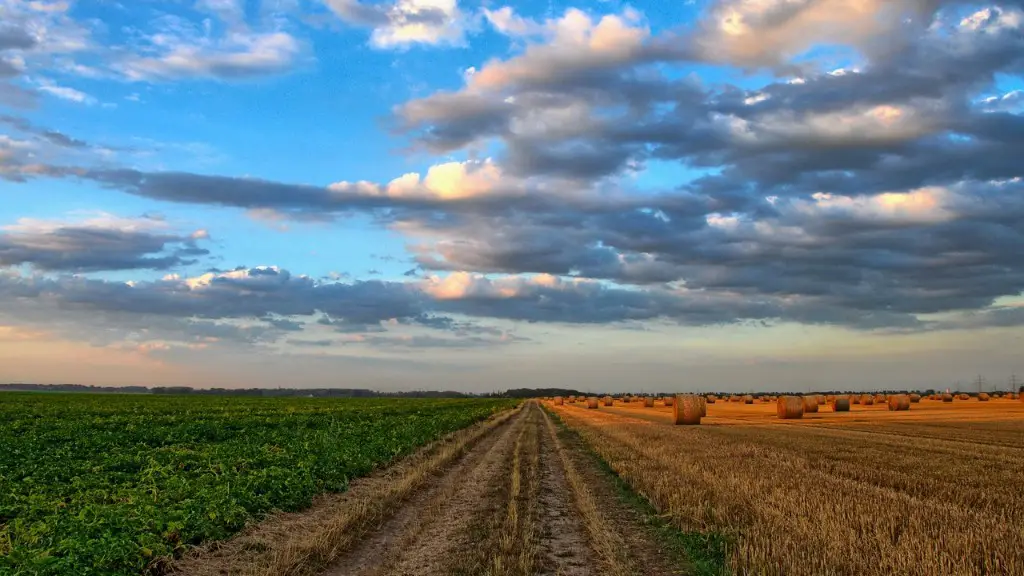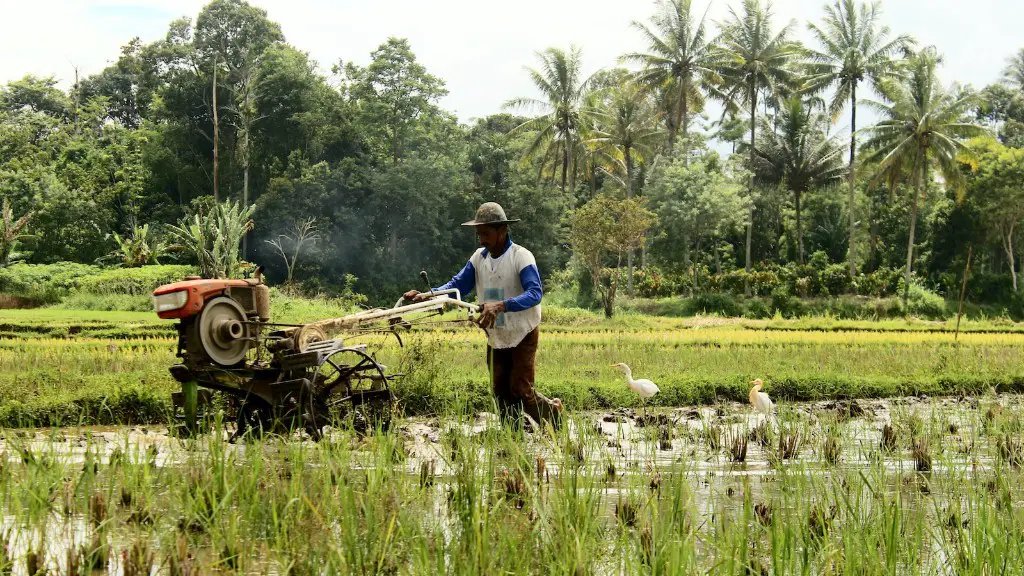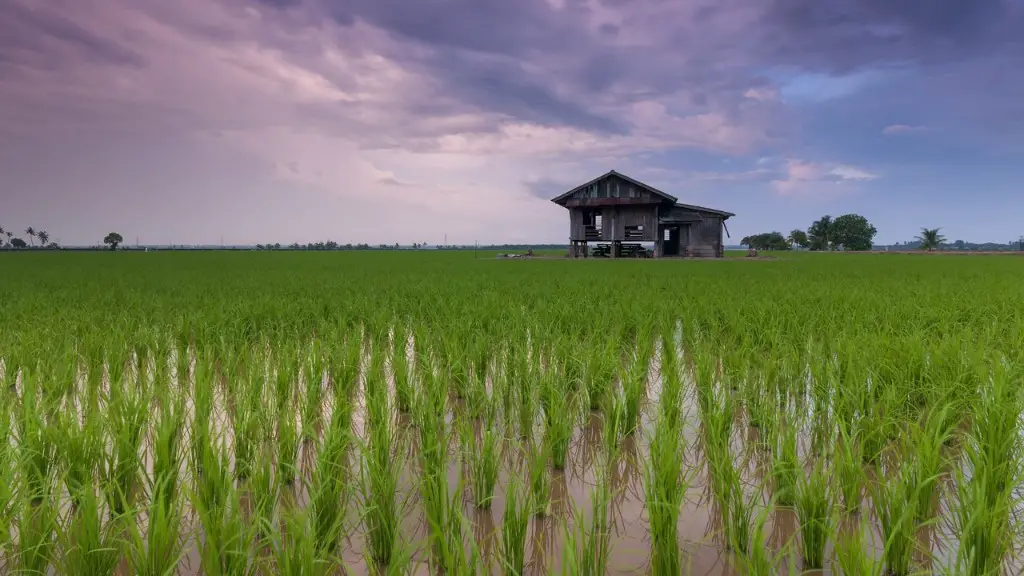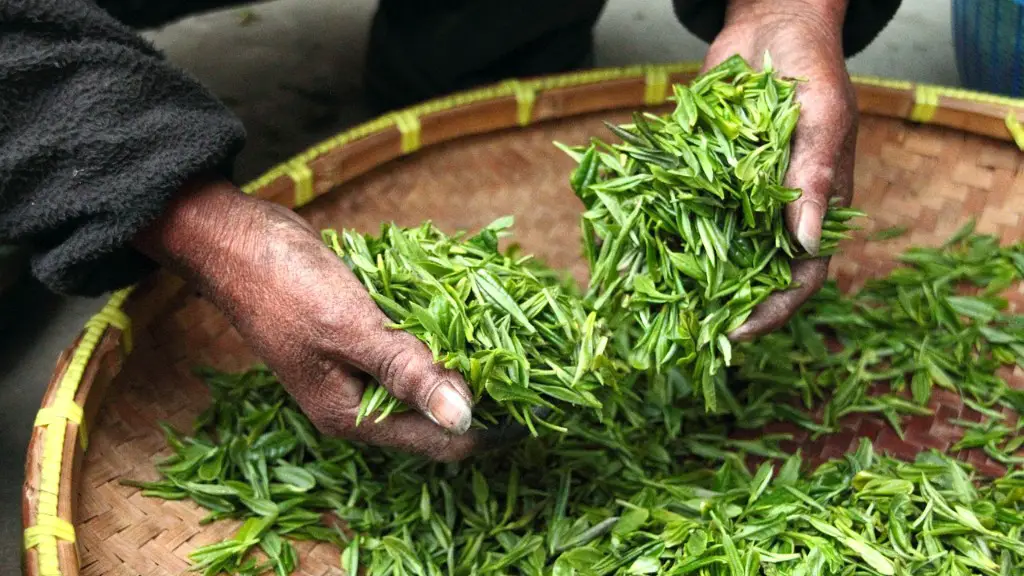Zero waste agriculture is a term used to describe farms and agricultural operations that generate no waste. This means that all of the by-products of the farm, including crop waste, animal manure, and any other scraps, are either reused on-site or sold off-site. This type of agriculture is not only good for the environment, but it can also be economically beneficial for farmers.
Zero waste agriculture is a term used to describe agricultural production systems that aim to reduce waste throughout the entire food system, from farm to Fork. This type of agriculture strives to create a closed loop system in which all food waste is either used as animal feed or returned to the soil as compost, resulting in little to no waste being sent to landfill.
What is the meaning of zero waste?
The goal of zero waste is to conserve all resources by minimizing the amount of waste that is produced. This can be done by reducing the amount of products that are consumed, reusing products and packaging, and recycling materials. Burning waste releases harmful toxins into the environment and is a major contributor to air pollution. Disposing of waste in landfills also creates environmental problems. leachate can contaminate groundwater, and methane gas can be released into the atmosphere.
Zero waste is a more sustainable way of managing resources. It reduces the strain on the environment and protects human health.
Pesticide and fertilizer containers, construction and demolition material, and ornamental or landscape vegetation can all be recycled. Pesticide and fertilizer containers should be rinsed out and recycled with other plastic containers. Construction and demolition material can be recycled at construction sites. Ornamental or landscape vegetation can be composted or used as mulch.
What is zero waste manufacturing
Zero waste manufacturing is a promising concept for transitioning to a circular economy. By developing manufacturing technologies and systems that eliminate waste across entire value chains, it has the potential to significantly reduce environmental impacts. In addition, Zero waste manufacturing can help to create jobs and spur economic growth.
Zero waste is a term used to describe a lifestyle and philosophy that aims to reduce the amount of waste produced. Zero waste conserves resources and minimizes pollution by avoiding the use of disposable products and instead opting for reusable items. Once they’re used, the goods are simply dumped in a landfill or destroyed in an incinerator. In contrast, a zero waste approach conserves natural resources and reduces pollution from extraction, manufacturing and disposal.
What is an example of zero waste?
There’s no need to use disposable plastics when there are so many reusable options available. Reusable cutlery, straws, plates, and cups are easy to find and use, and they don’t end up in our landfills or the bellies of sea turtles. So next time you’re out and about, be sure to bring your reusable cutlery, straws, and containers with you!
The 5 Rs are:
Refuse: Say no to things you don’t need. This includes things like freebies, single-use items, and things that come in excessive packaging.
Reduce: Cut down on the amount of stuff you use. This includes things like buying in bulk, choosing quality over quantity, and repairing items instead of replacing them.
Reuse: Use things again and again. This includes things like storing food in reusable containers, using a reusable water bottle, and using a reusable coffee cup.
Recycle: Recycle items that can’t be reused. This includes things like plastic, metal, and paper.
Rot: Compost food scraps and other organic materials. This helps to reduce methane emissions and create a nutrient-rich soil amendment.
What is agricultural waste give example?
Agricultural waste can cause serious environmental problems if it is not managed properly. Manure and other farm wastes can pollute water resources, and pesticide runoff can contaminate both surface and ground water. In addition, agricultural waste can contribute to air pollution and generate dust that can affect human health.
Agricultural waste typically refers to plant materials that are leftover from agricultural production and often include crop residues like stems and leaves. These waste streams can originate from both arable land and horticulture. In many cases, these materials are not used for human or animal food and are thus considered waste. However, some agricultural waste can be used for things like animal bedding, compost, or biofuel.
How can we reduce agricultural waste
The management of agricultural solid waste is a pressing issue confronting many farmers. One effective means of managing agricultural solid wastes is to recycle them to produce useful products. This can be achieved through compositing/organic manure or through substrates for edible fungi cultivation. Through these recycling methods, farmers can reduce the amount of waste produced on their farm and can instead produce products that can be used to improve their farm’s productivity.
While it is true that Zero Waste requires significant investment, it is important to remember that the long-term goal is to save money. In the short-term, it may be costly to purchase Zero Waste products, but in the long-term, these products will save consumers and industries money. The reason Zero Waste products are expensive is because plastic is cheap. Plastic is a materials that is used in a variety of products, but it is not biodegradable. This means that it will take many years for plastic to decompose, which is costly for both consumers and industries.
How can we achieve zero waste?
The zero-waste lifestyle is a great way to live a more sustainable life. Here are 9 tips to help you transition into a zero-waste lifestyle:
1. Eliminate single-use items: Single-use items are a major contributor to waste. Take a look at your life and see where you can eliminate single-use items, such as disposable coffee cups, plastic water bottles, straws, etc.
2. Take note of your trash: Pay attention to what you’re throwing away and see where you can reduce or eliminate waste.
3. Recycle: Recycling is a great way to reduce waste. Make sure to recycle items such as glass, plastic, paper, etc.
4. Thrift shop: Purchasing second-hand items is a great way to reduce waste and save money.
5. Repurpose household items: Rather than throwing away household items that are no longer used, see if there’s a way you can repurpose them. For example, old towels can be used as cleaning rags.
6. Compost: Composting is a great way to reduce food waste. Rather than throwing away food scraps, compost them so they can be used
There are many ways to reduce the amount of waste we produce, and it’s important to do what we can to protect our environment. Here are seven steps toward a zero-waste lifestyle:
1. Refuse unnecessary items. Because we live in a wasteful society, it’s easy to bring many unneeded things home. So be mindful of what you really need and only take what you will use.
2. Embrace the free movement. There are many ways to find good quality items for free or at a greatly reduced cost. Freecycle and Craigslist are great resources for finding furniture, clothing, and other items.
3. Recycle clothing. Don’t throw away clothes that are no longer wearable – recycle them! There are many organizations that will take used clothing and either recycle it or donate it to those in need.
4. Set up a lending network with friends. Do you have items that you don’t use very often, but don’t want to get rid of? See if you can set up a lending system with friends or family members. This way, you can still have access to the items you need without having to keep them in your home all the time.
5. Decline paper catalogs and
What is the first step for zero waste
Reducing the amount of waste you create is the best way to reduce your environmental impact. It takes less energy and resources to reduce waste than it does to reuse or recycle it.
The bottom line is that recycling is part of the zero-waste concept, but zero waste is not necessarily a part of recycling. The goal of zero waste is much broader than recycling, aiming to reduce or eliminate waste at the source rather than deal with it later. Recycling is just one part of the zero-waste concept, and it is not the only or even the most important part.
What is another word for zero waste?
Zero waste is a term used to describe a manufacturing, consumption, and waste management system in which no waste is produced. Everything is either reused, recyclable, or compostable.
The term “zero waste” is often used interchangeably with “sustainable materials management” and “circular economy.” These terms all describe ways of managing resources that minimize waste and environmental impact.
There is no one-size-fits-all definition of zero waste, as the term can mean different things in different contexts. However, the general idea is to design products and systems that eliminate wastefulness and allow for the safe and sustainable reuse or recycling of materials.
While zero waste may seem like a daunting challenge, it is possible to achieve in many different ways. businesses, governments, and individuals all have a role to play in moving towards a zero waste future.
I definitely think that zero waste can create green jobs! We need to be more conscious about preventing the wastage of resources and these jobs would be a great way to help with that. It would also be great for the economy because it would keep resources circulating continuously.
What are the four 4 types of wastes
1. Municipal solid waste is waste that is produced by households and businesses. This type of waste includes things like food scraps, packaging, and paper.
2. Industrial waste is waste that is produced by manufacturing and other industrial activities. This type of waste can include things like chemicals, toxic waste, and sewage.
3. Agricultural waste is waste that is produced by farming and other agricultural activities. This type of waste can include things like crop residuals, manure, and slaughterhouse wastes.
4. Hazardous waste is waste that is potentially dangerous to human health or the environment. This type of waste can include things like chemicals, oil, and radioactive materials.
A zero waste lifestyle is one in which we consciously minimize our waste and send nothing to landfills. This can be achieved by reducing our needs, reusing what we can, and recycling or composting the rest. While it may seem daunting at first, making small changes in our habits can make a big impact.
Conclusion
There is no one-size-fits-all answer to this question, as the concept of zero waste agriculture can vary depending on the specific farm and desired goals. However, generally speaking, zero waste agriculture refers to farming practices that aim to minimize or eliminate waste and pollution, while also maximizing resource efficiency and sustainability. This can include using techniques such as crop rotation, composting, and integrated pest management.
While zero waste agriculture may seem like a daunting task, it is important to remember that every little bit counts. Every time we compost or recycle, we are helping to reduce the amount of waste that ends up in our landfills. By making small changes in the way we farm, we can make a big difference in the health of our environment.




